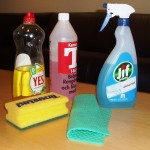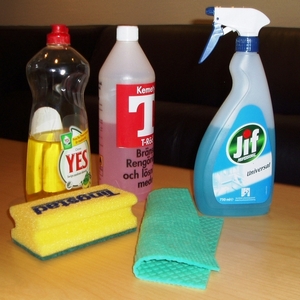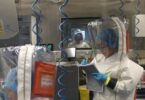 Many chemicals appear safe but aren’t. Likewise there are other items that are part of the “standard” of contemporary living that do more harm than good in the long run.
Many chemicals appear safe but aren’t. Likewise there are other items that are part of the “standard” of contemporary living that do more harm than good in the long run.
#1: Artificial Sweeteners
Artificial sweeteners such as aspartame and sucralose (Splenda) trick your body into storing fat and raise your risk of diabetes, so if you’re looking for health benefits, you’d be better off throwing those colorful little packets in the trash.
The same goes for any food or beverage containing artificial sweeteners, such as diet soda. Besides worsening insulin sensitivity and promoting weight gain, artificial sweeteners also promote other more serious health problems, including heart attacks, stroke and Alzheimer’s disease.
#2: Plastic Food Containers and Bottles
Tossing your plastic food containers and plastic bottles is a basic step to reducing your exposure to endocrine-disrupting chemicals such as bisphenol-A (BPA), bisphenol-S (BPS), and phthalates.
#3: Non-Stick Cookware
To further clean up your kitchen act, toss non-stick pots and pans and replace them with ceramic or glass cookware. The non-stick coating is made with a chemical called perfluorooctanoic acid (PFOA), which has been labeled a “likely” carcinogen by an independent scientific review panel that advises the US Environmental Protection Agency (EPA).
#4: Air Fresheners
Room deodorizers frequently contain 2, 5-dichlorophenol (2, 5-DCP), a metabolite of 1,4-dichlorobenzene, which has been linked to precocious puberty and other health problems,13 including cancer. Endocrine-disrupting phthalates are also commonly found in air fresheners and room deodorizers.
If you’re having issues with unpleasant smells, you’d be wise to address the root causes rather than masking them with chemical sprays.
Opening your windows and doors from time to time can help, and will also improve the general air quality in your home or office. If you want a scent, opt for high-quality pure essential oils, which can actually support your health and wellbeing.
#5: Antibacterial Soaps and Detergents
Routinely disinfecting your body and surroundings may actually cause far more harm than good in the long run. Not only does it promote the development of drug-resistant bacteria, but antibacterial compounds such as triclosan have also been linked to a number or harmful health effects, especially in young children.
For example, research has shown that triclosan can alter hormone regulation and may interfere with fetal development in pregnant women. This antibacterial ingredient has also been linked to:
* Allergies
* Thyroid dysfunction
* Endocrine disruption
* Weight gain
* Inflammatory responses
Warm water and a mild soap is really all you need to safely eliminate disease-causing microbes Even the US Food and Drug Administration (FDA) has stated that “there is currently no evidence that [antibacterial soaps] are any more effective at preventing illness than washing with plain soap and water.”
For full details and/or more dangerous items go to:
http://articles.mercola.com/sites/articles/archive/2099/12/31/10-everyday-items-throw-away.aspx







